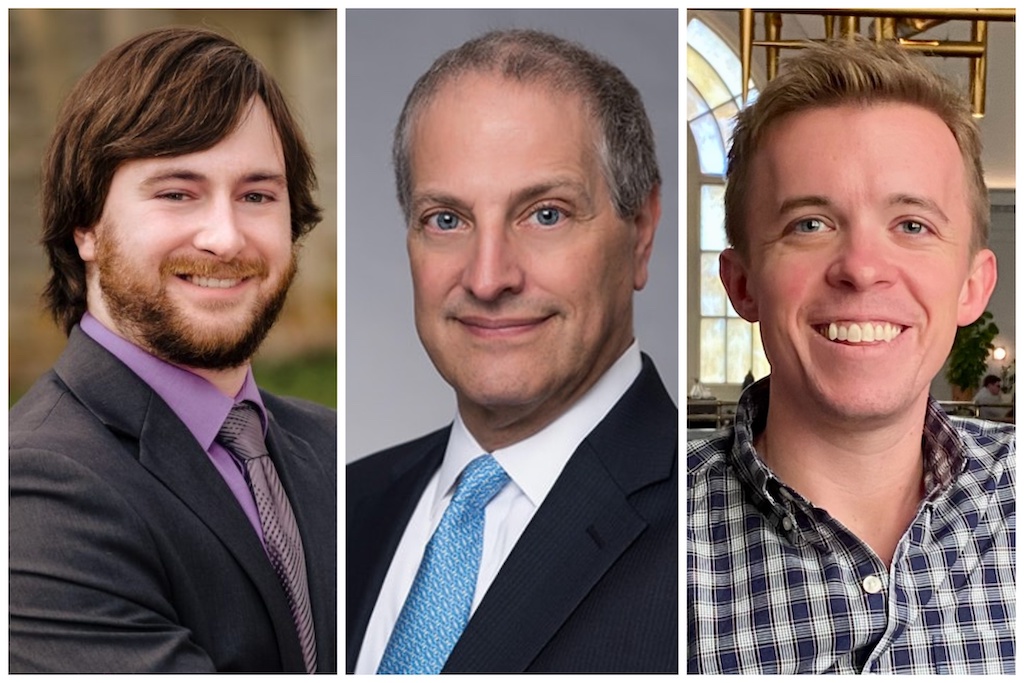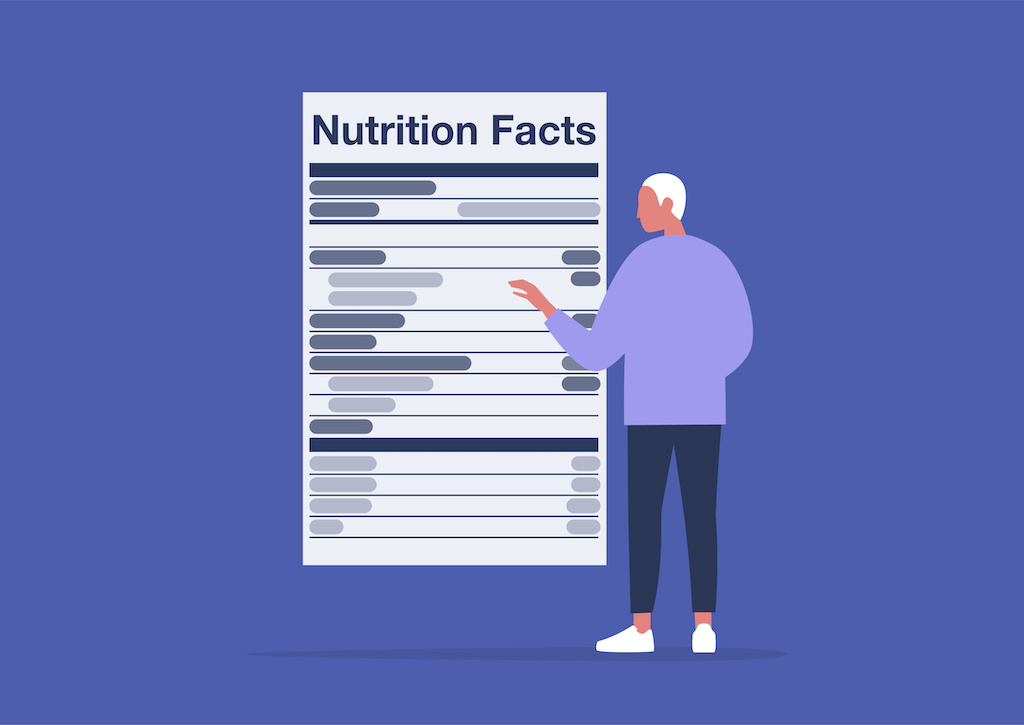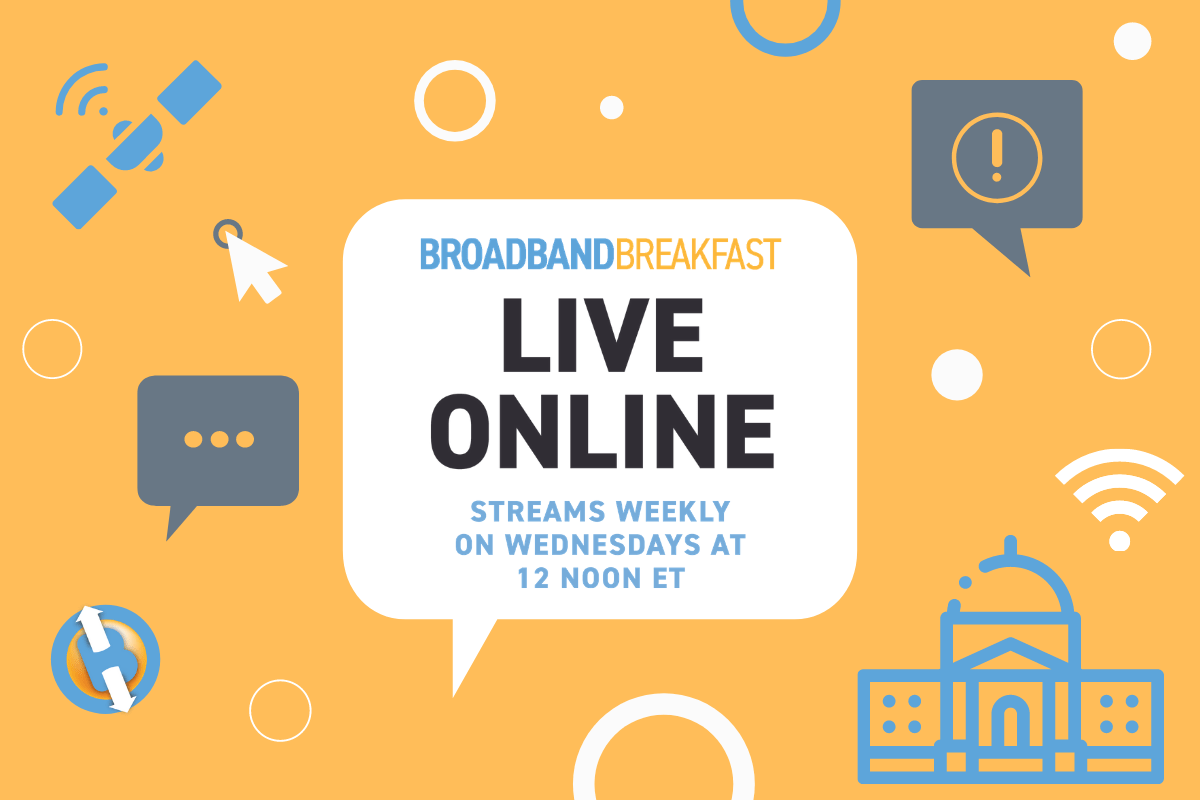Experts Disagree on Increased Requirements for FCC Broadband Nutrition Labels
Rules can increase the burden on small providers.
Teralyn Whipple

WASHINGTON, July 28, 2023 – Experts disagreed on whether the Federal Communications Commission should require more data from internet service providers for broadband “nutrition” labels at a Broadband Breakfast Live Online event Wednesday.
The broadband nutrition label, as mandated by the Infrastructure Investment and Jobs Act of 2021, requires broadband providers to display at the point of sale a label that shows prices, introductory rates, speeds, data allowances, and other critical broadband service information.
The FCC released proposed rules on July 18 that would add additional requirements to the nutrition labels, to which several providers and associations expressed that the additional rules would place undue burden on small providers and would not improve data, said Steve Coran, chair of Lerman Senter’s broadband at the Spectrum and Communications Infrastructure practice group.
Data requirements as currently outlined by the FCC are balanced, clear and easy and will promote transparency, said Coran. In response to responses from providers, the FCC increased its estimation that the proposed rulemaking would create between 1 and 9 hours of annual burden on providers to a range of 1.5 to 65 hours, he said.
However, Ryan Johnston, senior policy counsel at municipality public interest nonprofit Next Century Cities, warned that the label requirements will not provide data as comprehensive as is necessary. As currently written, providers are allowed to report the “typical” speeds that each location receives. These ranges provide no certainty and is “more ethereal than the maximum advertised speed,” said Johnston.
Additionally, the FCC failed to include the measurements that consumers want to see, include more precise pricing models, promotion lengths, and expected bill after promotions are done, said Johnston. He urged the FCC to require providers to report the average speed.
Joshua Stager, policy director at Free Press, agreed, saying that the core issue for consumers is to address bill shock, referring to the uncertainty around internet bills and the detrimental effect it has on low-income households. For this reason, he urged the FCC to ensure that consumers will be able to access the label.
Stager said that the FCC declined to require that the label be put on the monthly bill. He warned that providers can hide the label from consumers which will result in a lack of market response simply because consumers are not aware that the label exists.
Discriminatory pricing in the industry is blatantly obvious, said Sascha Meinrath, Palmer Chair in telecommunications at Penn State University. “The FCC consistently refuses to collect the kind of information that would exonerate ISPs or condemn them,” he stated.

Sascha Meinrath
He warned that this lack of appropriate data collection will be to the detriment of consumers. He accused the FCC of refusing to act against discriminatory and predatory pricing, claiming that it is a prime example of “American corruption.”
Meinrath, who assisted in the initial proposal for the nutrition labels, said that the goal of the labels was to provide customers with information on the minimum services they will expect to see. He claimed that the current nutrition labels are insufficient and do not achieve those goals.
Our Broadband Breakfast Live Online events take place on Wednesday at 12 Noon ET. Watch the event on Broadband Breakfast, or REGISTER HERE to join the conversation.

Wednesday, July 26, 2023 – Broadband Nutrition Labels: Have They Improved?
In late 2022, the Federal Communications Commission required internet service providers to display broadband “nutrition” labels including speeds, service reliability, ACP participation and other relevant metrics at every point of sale. While there is consensus on the need for an informative and consumer-friendly label, some believe the requirements go too far or don’t go far enough. With federal broadband funding making its way to each state and the implementation phase just around the corner, the “nutrition labels” will soon become a reality. What might be the FCC’s next steps? How will the requirements affect broadband providers? How can consumers make sure they order from the right broadband “menu”?
Panelists
- Ryan Johnson, Senior Policy Counsel, Next Century Cities
- Steve Coran, Chair, Lerman Senter’s Broadband, Spectrum and Communications Infrastructure practice group
- Joshua Stager, Policy Director, Free Press
- Sascha Meinrath, Palmer Chair in Telecommunications, Penn State University; Founder, X-Lab
- Drew Clark (moderator), Editor and Publisher, Broadband Breakfast

Ryan Johnson is responsible for NCC’s federal policy portfolio, building and maintaining relationships with Federal Commissions Commission officials, members of Congress and staff, and public interest allies. Working with various federal agencies, Ryan submits filings on behalf of NCC members on technology and telecommunications related issues that impact the digital divide such as broadband data mapping, benchmark speeds, spectrum policy, content moderation, privacy, and others.
Steve Coran is chair of Lerman Senter’s Broadband, Spectrum and Communications Infrastructure practice group. He represents broadband providers, private equity firms, equipment and technology companies, and new technology firms, serving their policy, transactional, compliance, and licensing needs. He also actively represents a trade association before the FCC, Congress, and other federal agencies in matters involving spectrum policy, Internet regulation, the Universal Service Fund, and other proceedings affecting wireless broadband service providers and other wireless technology interests.
Joshua Stager is the policy director at Free Press, where he advances policies to close the digital divide, protect consumers, and make the broadband market competitive and affordable. As a public interest advocate and attorney, he works closely with industry, Congress, the FCC and other federal agencies. He previously was deputy director of the Open Technology Institute.
Drew Clark is CEO of Breakfast Media LLC. He has led the Broadband Breakfast community since 2008. An early proponent of better broadband, better lives, he initially founded the Broadband Census crowdsourcing campaign for broadband data. As Editor and Publisher, Clark presides over the leading media company advocating for higher-capacity internet everywhere through topical, timely and intelligent coverage. Clark also served as head of the Partnership for a Connected Illinois, a state broadband initiative.

WATCH HERE, or on YouTube, Twitter and Facebook.

As with all Broadband Breakfast Live Online events, the FREE webcasts will take place at 12 Noon ET on Wednesday.
SUBSCRIBE to the Broadband Breakfast YouTube channel. That way, you will be notified when events go live. Watch on YouTube, Twitter and Facebook.
See a complete list of upcoming and past Broadband Breakfast Live Online events.








